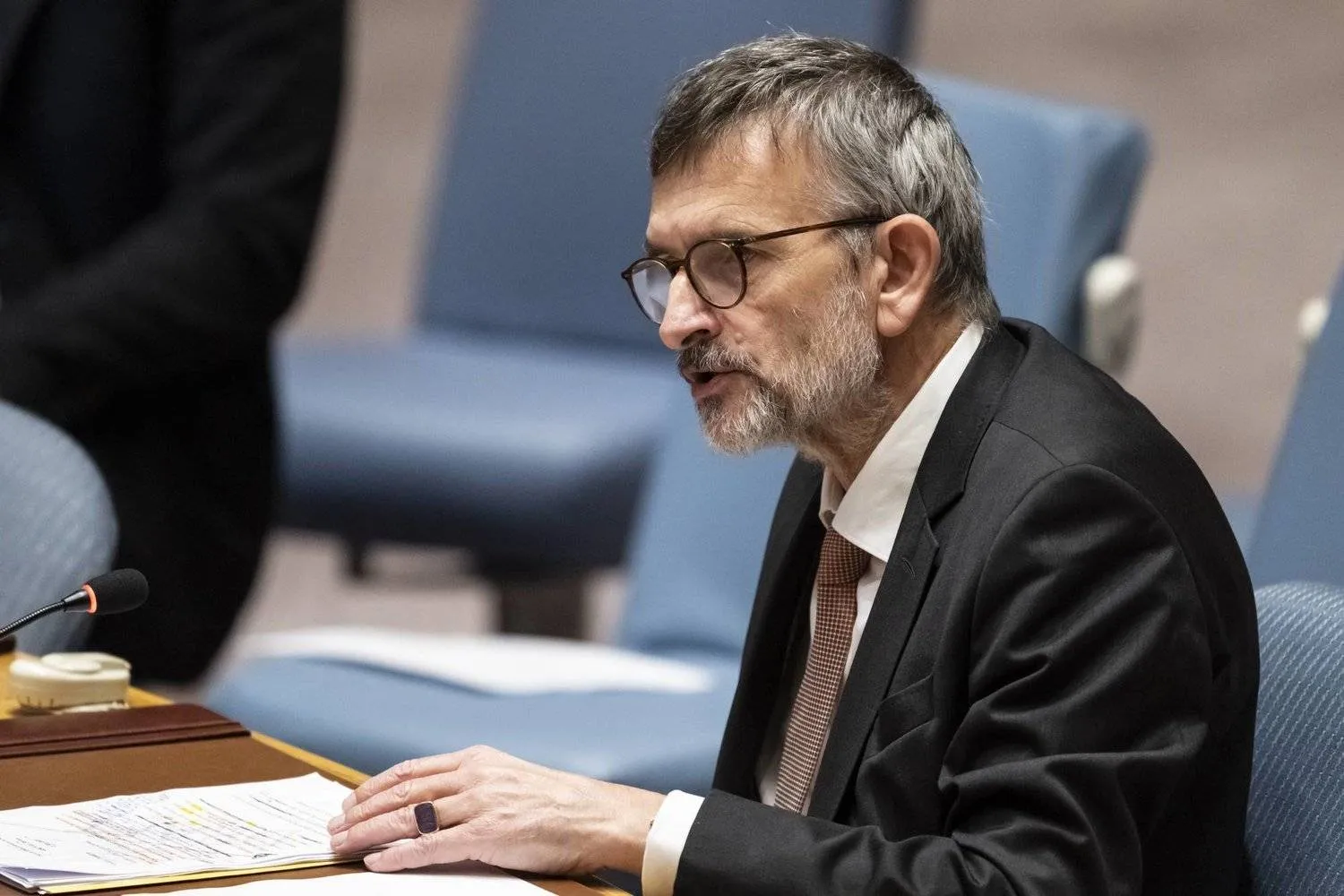The Sudanese government has declared United Nations envoy Volker Perthes "persona non grata", two weeks after the army chief accused him of stoking the country's civil conflict and sought to have him removed from his post.
Since late last year, Perthes and the UN mission he heads in war-torn Sudan have been targeted by protests denouncing perceived foreign interference.
In a letter to the UN last month, Sudan's military chief General Abdel Fattah al-Burhan blamed the envoy for exacerbating fighting between his army and the paramilitary Rapid Support Forces (RSF) led by commander Mohamed Hamdan Daglo.
UN chief Antonio Guterres has repeatedly defended Perthes, who earned ire after criticizing both leaders of Sudan's warring parties as the two-month conflict evades efforts to broker a humanitarian ceasefire.
"The Government of the Republic of Sudan has notified the Secretary-General of the United Nations that it has declared Mr. Volker Perthes ... persona non grata as of today," the Ministry of Foreign Affairs said in a statement on Thursday.
Perthes was in Addis Ababa, Ethiopia on Thursday for a series of diplomatic talks, according to the UN mission's Twitter feed.
Last week, the precarity of the UN's status in Sudan was highlighted when the Security Council voted to extend the UN Integrated Transition Assistance Mission in Sudan (UNITAMS) for only six months.
Created in June 2020 to support Sudan's democratic transition after the fall of longtime President Omar al-Bashir a year earlier, UNITAMS's mandate had previously been renewed annually for a year.
Sudan's stuttering path to civilian rule was disrupted in 2021 when Burhan and Daglo together seized power in a coup before falling out.
Spiraling humanitarian crisis
Since April, fighting between the army and the RSF has gripped Khartoum and the western region of Darfur, defying a series of truces.
Upwards of 1,800 people have been killed, according to the Armed Conflict Location and Event Data Project, and the UN says 1.2 million have been displaced, with more than 425,000 fleeing abroad.
Those unable to leave have been forced to camp out for weeks as supplies of food and other vital goods have been depleted.
Entire districts of Khartoum no longer have running water, electricity is only available for a few hours a week and three-quarters of the hospitals in combat zones are not functioning.
The most recent truce was agreed to allow desperately needed humanitarian aid into areas of Sudan ravaged by the fighting, but like all those that preceded, the accord was routinely violated by both sides.
The UN estimates around 25 million people -- more than half of Sudan's population -- are now in need of aid and protection in what was already one of the world's poorest countries before the conflict.
Perthes, a former academic who has headed the Sudan mission since 2021, has staunchly defended the UN against accusations of inflaming the conflict, saying those responsible are "the two generals at war".
In his letter to Guterres, Burhan accused Perthes of bias and of not respecting "national sovereignty".
He said Perthes presented a misleading picture "of consensus" in his reports to the UN, and "without these signs of encouragement, the rebel leader Daglo would not have launched his military operations".
It has never been possible to verify who fired the first shots of the war.









